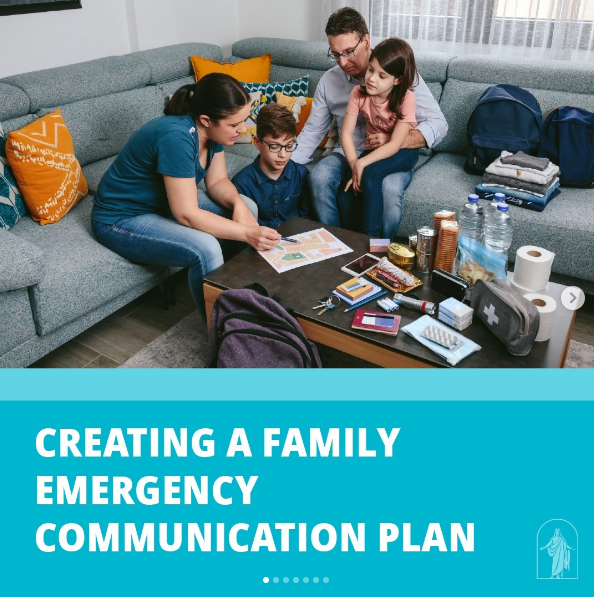
If phones are down in an emergency, how will you communicate with your family?
Preparing your family for how to communicate is one of the best tools you can give them in the event of an emergency. Immediately knowing where to go and whom to call can help you think clearly in a chaotic time and reunite with your loved ones if you are separated.
Below are six ways to make effective plans so that those you care about are accounted for. These ideas come from caring.ChurchofJesusChrist.org.
- Make a list of emergency contacts. Include names, phone numbers, and addresses for essential family members, medical offices, schools, day care centers, etc. Make contact cards and keep them in easily accessible locations like a purse, wallet, or child’s backpack.
- Decide on a family meeting place. Choose a location both in your neighborhood and out of town in case you cannot get in touch or are unable to go home. Find locations that everyone is familiar with and will remember. Include these locations on your contact cards.
- Teach children how to call 911. Help younger children to understand how and when to call 911. You should only call 911 when there is a life-threatening emergency.
- “In case of emergency” contacts. Store at least one emergency contact in all mobile devices as “ICE” or “In Case of Emergency.” This will help someone identify who to call when needed. Inform your emergency contact of any medical conditions or other vital health information.
- Utilize text messages. Teach all family members how to send a text message. Texts can often get around network disruptions when phone calls cannot.
- Review your emergency plan. Practice and revise your family communication plan at least once a year or whenever any information changes.
Learn about Church preparedness resources.

Trackbacks/Pingbacks